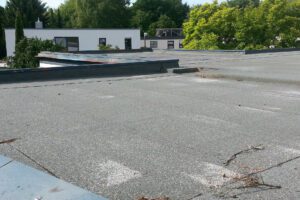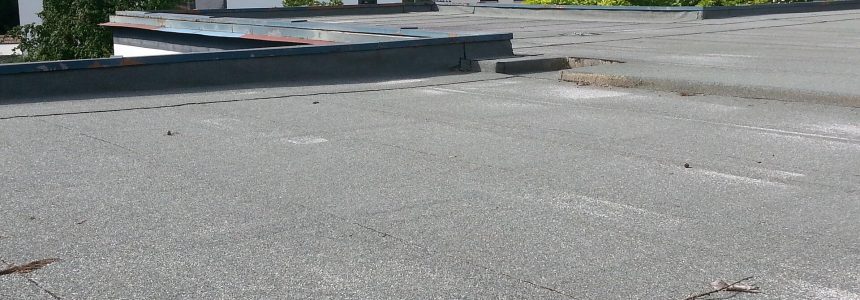

A flat roof, though stylish and modern, is not without its share of demands when it comes to upkeep. Its maintenance is a topic that’s both vast and vital, encompassing a range of considerations that every flat roof owner should be privy to. The question of when to opt for a flat roof inspection and maintenance is not just timely but timeless, resonating through the lifecycle of your roof.
Flat roofs, with their unique architectural allure, have a distinct set of needs compared to their pitched counterparts. The essence of maintaining a flat roof isn’t merely reactionary; it’s fundamentally preventive. Understanding this aspect can save homeowners a significant chunk of change, not to mention the peace of mind that comes with a well-maintained roof.
Flat roofs are cherished for their modern aesthetic and functional appeal. They provide additional living space, be it a rooftop garden or a leisure deck. However, their flat structure is prone to certain challenges like water pooling, which necessitates a unique approach to maintenance.
Extending Lifespan: A well-maintained flat roof can serve you well beyond its expected lifespan, ensuring you get the most out of your investment.
Avoiding Costly Repairs: Regular inspections help catch minor issues before they escalate into major, cost-intensive repairs.
Enhancing Energy Efficiency: A well-maintained roof acts as a better insulator, aiding in keeping your energy bills within check.
Upholding Aesthetic Appeal: A well-kept roof also contributes to the overall aesthetic appeal of your home, maintaining or even increasing its market value.
Water Leakage: Persistent water seepage or pooling is a red flag that your flat roof requires a thorough inspection.
Visible Damage: Cracks, blisters, or punctures are indicative of potential underlying issues that need attention.
Age of the Roof: As your roof ages, the need for inspection and maintenance becomes increasingly imperative to prevent major issues.
Sagging or Structural Changes: Any noticeable sagging or structural alterations warrant a professional inspection.
Regular Maintenance Scheduling: Establishing a regular maintenance schedule, ideally bi-annually, is a prudent move to keep your flat roof in optimal condition.
After Severe Weather: Harsh weather conditions can wreak havoc on your flat roof; a post-storm inspection can help assess and remedy any damages incurred.
Before Winter: A pre-winter check can help nip any potential issues in the bud that could worsen with snow and ice accumulation.
Before Monsoon: Similar to pre-winter checks, a pre-monsoon inspection can help prevent water damage during the rainy season.
Assessment: A thorough examination to identify any existing or potential issues.
Repairs: Timely repairs to rectify the identified issues ensuring your roof remains in good health.
Recommendations: Receiving professional advice on preventive measures and future maintenance.
Future Prevention: Recommendations for future preventive measures to uphold the structural integrity of your flat roof.
DIY Inspection and Maintenance: While basic checks can be carried out by homeowners, a professional eye is crucial for a thorough assessment and addressing complex issues.
Professional Inspection and Maintenance: Engaging professional services ensures a comprehensive inspection, accurate diagnosis, and proficient repairs.
The necessity for timely inspection and maintenance of your flat roof cannot be stressed enough. A proactive approach not only ensures the longevity and functionality of your roof but also safeguards the overall investment in your home. By heeding the signs of potential issues and adhering to a regular maintenance schedule, you can ensure that your flat roof continues to serve you reliably for many years to come.
How often should I have my flat roof inspected?
What is the lifespan of a flat roof?
What are the common problems faced by flat roofs?
Can I perform a flat roof inspection myself?
What is the cost of flat roof maintenance?